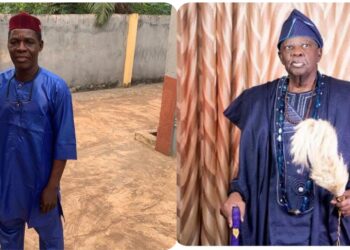
By Ibrahim Kegbegbe
The National Broadcasting Commission (NBC) has reportedly banned a new single by veteran Afrobeat musician and political activist, Eedris Abdulkareem, sparking national outrage and reigniting the debate on freedom of expression in Nigeria.
The song, titled “Tell Your Papa,” which reportedly critiques the policies and performance of President Bola Ahmed Tinubu’s administration, was deemed “unfit for broadcast” by the regulatory body. According to a statement posted on the artist’s verified social media handle, the NBC has issued a directive to all broadcast stations in Nigeria, instructing them to refrain from airing the song.
In his statement, Abdulkareem condemned the move as a blatant attack on truth and a continuation of what he described as Nigeria’s long history of intolerance toward dissenting voices.

“It’s obvious that in Nigeria, truth and constructive criticism is always deemed a big crime by the government,” he wrote. “This present government led by President Bola Tinubu is now going on record as one of the most insensitive, vindictive, and grossly maleficent administration ever to preside over the affairs of Nigeria.”
The singer, who rose to political prominence in 2004 with his controversial hit “Jaga Jaga,” said the current situation is reminiscent of the censorship he experienced during President Olusegun Obasanjo’s administration. That song, which highlighted issues such as corruption, police brutality, and economic disparity, was also banned from public airplay after Obasanjo declared it an insult to the nation.
“Well, I have travelled this road before,” Abdulkareem stated. “This is reminiscent of the ban of my song ‘Jaga Jaga’ by the Obasanjo administration 21 years ago! Any wonder why Nigeria hasn’t made impactful strides all these years?”
The artist accused the government of trying to silence criticism and stifle civic engagement by controlling public discourse through media censorship. He expressed disappointment that under a democratic government, freedom of artistic expression continues to be suppressed.
“Just under two years of Tinubu’s presidency, and the results are frighteningly abysmal from all fronts,” he added. “And this is a fact known by all Nigerians, irrespective of religion, tribe, and political affiliations, except for the few happy slaves grovelling for crumbs from their paymaster’s table.”
Eedris Abdulkareem ended his statement with a powerful Yoruba adage popularised by Nigeria’s Nobel Laureate, Professor Wole Soyinka:
“The conscience is an open wound, only the truth can heal it.”
“Aluta Continua!”
As of press time, the NBC has yet to release another official statement regarding the official statement of the ban or respond to Abdulkareem’s claims. However, media advocacy groups and civil society organisations have expressed concern over what they see as a growing pattern of suppressing dissent under the current administration.
Eedris Abdulkareem, who has consistently used music as a tool for activism, remains one of the few artists who continue to speak truth to power in an era where many voices have gone silent or been co-opted.
International observers and press freedom advocates are now watching closely as the controversy unfolds, with many calling on the Nigerian government to respect artists’ rights to free expression as enshrined in the 1999 Constitution and various international treaties to which Nigeria is a signatory.
















